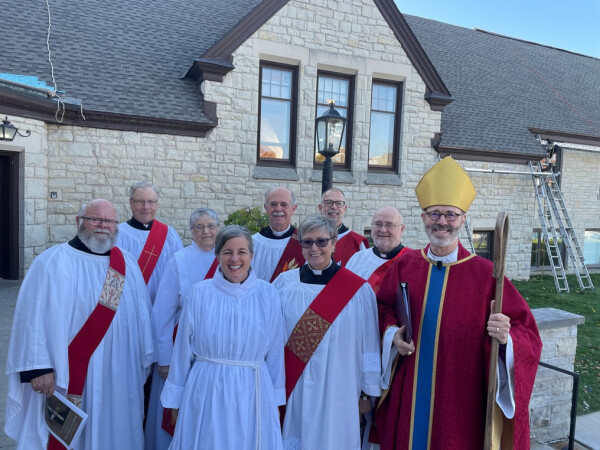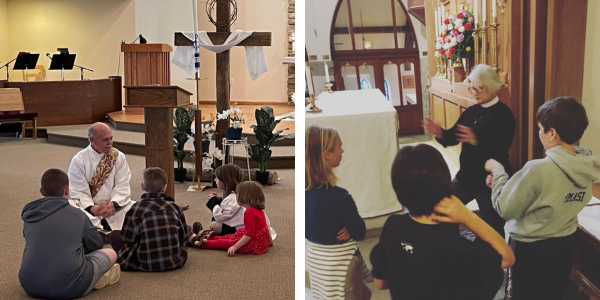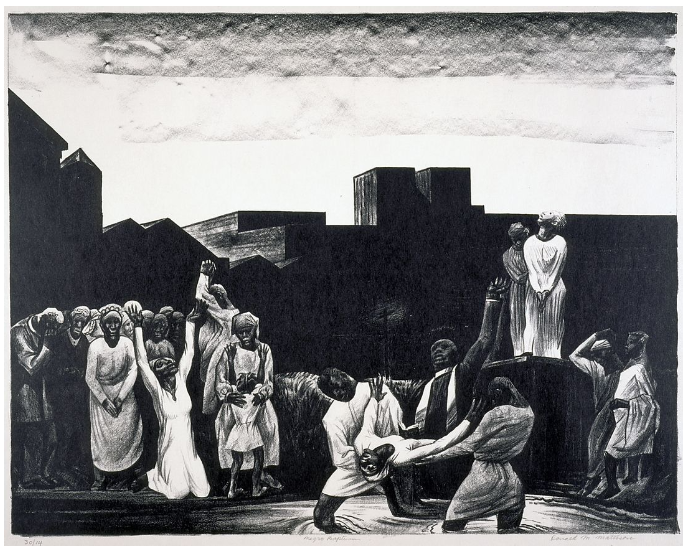Letter from Standing Committee President
Greetings beloved kindred of the Diocese of Milwaukee,
I have the privilege of having served as president of the diocesan Standing Committee for the last two years, and in that time I have witnessed much healing and spiritual growth that has occurred throughout our diocese. We have learned new ways of relating to each other, we have been empowered to live out our mission as Christ’s Church in unique and wonderful ways, and we have been given the space and the courage to ask the question, “What is next?” What is next for us as individual Christians, what is next for our parishes, what is next for our diocese, and what is next for us as Episcopalians in the state of Wisconsin?
As I have watched all of these things occur and look toward the future of “what is next,” I have been and will be forever grateful for the presence, leadership, and grace of Bishop Jeffrey Lee, who has been our shepherd throughout this time. As the end of his time with us as our bishop provisional has quickly come upon us, I cannot imagine where we would be right now had it not been for him and the blessings he brought to us in this time and place.
And at the same time, though I will miss him so very much, I do not have any anxiety about his departure. The Diocese of Milwaukee is in a really good place. Our lay and clergy leadership is strong and healthy. Our diocesan staff is skilled and committed. We are joyfully meeting the needs of our people and parishes and global outreach missions. And we have a plan to move forward with confidence whether that be towards reunification with the dioceses of Eau Claire and Fond du Lac, or whether that be towards the search and calling of our next bishop.
One of the gifts Bishop Lee has given us is the space to learn how to discern together who Christ is calling us to be and the confidence to follow that call. It is my prayer and my hope that we take that gift and use it in ways that will enable us to be Christ’s hands and heart to our communities and the world.
So thank you, Jeff, for all you brought to us and all that you leave behind. As you enter into retirement (again), I would like to leave you with this blessing For Retirement from John O’Donohue’s book “To Bless the Space Between Us.”
This is where your life has arrived,
After all the years of effort and toil;
Look back with graciousness and thanks
On all your great and quiet achievements.
You stand on the shore of new invitation
To open your life to what is left undone;
Let your heart enjoy a different rhythm
When drawn to the wonder of other horizons.
Have the courage for a new approach to time;
Allow it to slow until you find freedom
To draw alongside the mystery you hold
And befriend your own beauty of soul.
Now is the time to enjoy your heart’s desire,
To live the dreams you’ve waited for,
To awaken the depths beyond your work
And enter into your infinite source.
With the departure of Bishop Lee and our ongoing discernment about reunification with the other two dioceses in Wisconsin, the Diocese of Milwaukee once again finds itself in a place of transition where we feel the best course of action for the moment is to have our Standing Committee as the Ecclesiastical Authority and contract with Bishop Matt Gunter of Fond du Lac to be our assisting bishop.
Especially with our robust diocesan staff, the competent lay and clergy leadership that is in place throughout the diocese, and our current relationship with Bishop Matt as we continue with the Trialogue discussion, this arrangement will enable us to continue the good work we are doing, while remaining flexible for what might come in the not too distant future.
We have contracted with Bishop Matt to be our assisting bishop through June of 2024. If the decision is made that we will reunify the three Wisconsin dioceses during that time, that will bring us to the time of the General Convention when we will officially become one diocese. If the decision is made to not reunify, the June 2024 date will give us time to begin a search for the next Bishop of Milwaukee, and we will determine the next steps and needs for Ecclesiastical Authority until a bishop is called.
For most of the needs you might have as clergy and parishes during this time, the best place to start is with our diocesan staff. They can help direct issues to the right person. Canon Scott Leannah, canon to the ordinary, and the Standing Committee will be available for most of the needs of the diocese.
Bishop Matt will be available for Standing Committee meetings, upcoming ordinations, and a regional confirmation event we will soon schedule for early 2024. We will also have Bishop Matt’s visitation schedule available to us should there be an urgent need for a confirmation or reception where folks could travel to another parish in Fond du Lac on a given weekend. And especially if we vote to reunify at our conventions in October, Bishop Matt will be making efforts to be at our clergy days and other events so we can get to know him a bit better over this next year.
As always, if you have any questions or concerns, please do not hesitate to reach out to me or anyone else on the Standing Committee and/or Canon Scott Leannah. We are all eager and honored to serve the Diocese of Milwaukee in this capacity and hope that you will keep us in your prayers as you are in ours.
The Rev. Jana Troutman-Miller
Standing Committee President



 Negro Baptism by Donald Mattison (American, 1905-1975). Courtesy of the Indianapolis Museum of Art at Newfields.
Negro Baptism by Donald Mattison (American, 1905-1975). Courtesy of the Indianapolis Museum of Art at Newfields.